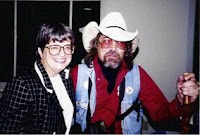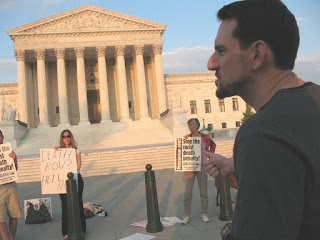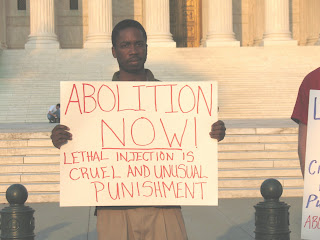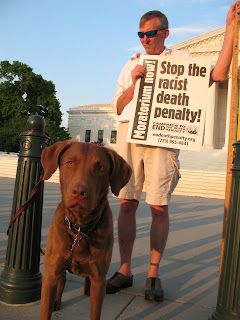I’m sure I’m not the only one wondering what to expect from the next administration following what is expected from the Democratic electoral victory. Speaking strictly for me, and letting others speak to what type of judges President-elect Obama will appoint, here is what I think we’ll see.
A criminal law fact sheet of campaign promises is here.
A quick primer on Obama and the death penalty that appeared some time ago in the Washington Post. As David note here sometime ago, “in a nutshell: He’s pro-death penalty but he is also pro-let’s not execute the wrong guy”
Five years later, Obama waded into a complex capital-punishment debate after a number of exonerations persuaded then-Gov. George Ryan (R) to empty death row.
Obama wrote in his recent memoir that he thinks the death penalty “does little to deter crime.” But he supports capital punishment in cases “so heinous, so beyond the pale, that the community is justified in expressing the full measure of its outrage by meting out the ultimate punishment.”
In proposing changes, Obama met repeatedly with officials and advocates on all sides. He nudged and cajoled colleagues fearful of being branded soft on crime, as well as death-penalty opponents worried that any reform would weaken efforts to abolish capital punishment.
Obama’s signature effort was a push for mandatory taping of interrogations and confessions. It was opposed by prosecutors, police organizations and Ryan’s successor, Democrat Rod Blagojevich, who said it would impede investigators.
Working under the belief that no innocent defendant should end up on death row an no guilty one should go free, Obama helped get the bill approved by the Senate on a 58 to 0 vote. When Blagojevich reversed his position and signed it, Illinois became the first state to require taping by statute.
“Obviously, we didn’t agree all the time, but he would always take suggestions when they were logical, and he was willing to listen to our point of view. And he offered his opinions in a lawyerly way,” said Carl Hawkinson, the retired Republican chairman o the Judiciary Committee. “When he spoke on the floor of the Senate, he spoke out of conviction. You knew that, whether you agreed with him or disagreed with him.”
As to the narrow issue of this blog, following the elections the death penalty will likely continue to wither on the vine. Sen. Obama is a death penalty reformer, not an abolitionist. One of the rarely spoken accomplishments of Sen. Obama is his voice in reforming the death penalty and criminal justice system in Illinois. Invariably both would have been reformed without him in some shape and form, however, the scars of the fight to get the broad based reforms that ultimately passed he still bares.
As the campaign noted:
As a member of the Illinois state senate, Barack Obama led efforts to reform a broken death penalty system that sent 13 innocent people to death row because it was filled with error, questionable police tactics, racial bias, and shoddy legal work. Obama drafted and passed a law requiring videotaping of interrogations and confessions in capital cases to ensure that prosecutions are fair. As president, Obama will encourage the states to adopt similar reforms.
For the federal death penalty what is clear is the Bush administration’s capital prosecution practices are coming to an end. The last eight years saw a marked decline in new state death sentences but the federal system saw a huge uptick in federal death sentences. The disparity will likely draw to a rapid close. Although many cases where death is now authorized may continue to go forward new authorizations will likely be fewer and farther between. Where capital prosecutions are sought anticipate the authorization process to be much more rigorous. Similarly, the campaign had stated early on that if elected they would seek to bring many of the Illinois style reforms to the rest of the nation, however what shape those will take remains to be seen.
[adopted from a post at CDW]














